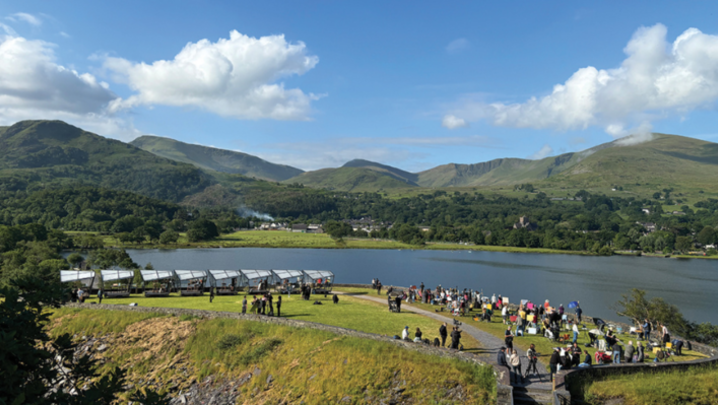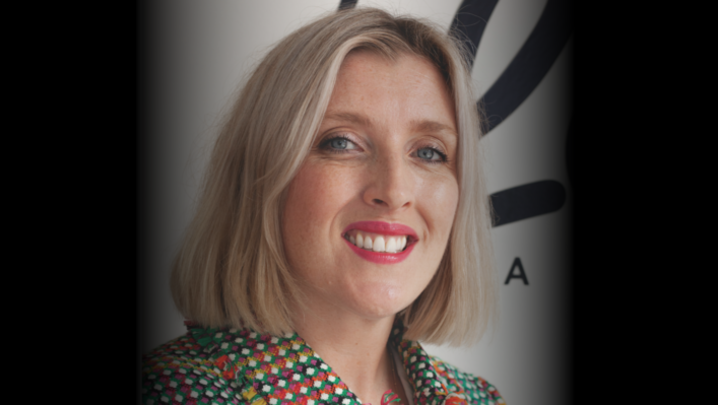Emma Norton’s TV debut as an executive producer was on Normal People, and she has followed it up with two more hits, RTÉ/BritBox comedy-drama The Dry and a second helping of Sally Rooney for the BBC, Conversations with Friends.
What does the job involve?
Executive producers, and there are usually more than one on a show, are across everything: creative development; scripting; casting and crewing; financing; the shoot; the edit; and marketing and publicity. Essentially, the role lasts for the lifespan of a project.
Do you focus on any particular areas?
On the projects I’ve executive produced so far, I’ve been heavily involved in all the editorial work, casting, creative decisions during the shoot and post-production – the key story-engine areas of a TV show.
How did you become an executive producer?
I came to the role via development; primarily working in film, rather than through the traditional TV route. There are plenty of different challenges in television, but my film background is an asset and I’m not shy about asking lots of questions.
What was the first film you worked on?
I script edited Lenny Abrahamson’s What Richard Did shortly after moving to Ireland to work for Element Pictures. It was a particularly memorable experience because my husband, Malcolm Campbell, wrote the film.
What was your first show as an executive producer?
Normal People, which was a huge but very satisfying learning curve. Knowing a lot of the team so well from the start made the transition easier and meant that we had a shorthand with each other.
What makes a good executive producer?
Having confidence in your own taste and, given that so many things are going on at once, the ability to multitask and delegate. I’m still working on being a good delegator.
Who do you work with closely on a production?
The writers and directors, the executive producers, series producer, heads of department and the script team.
What are the biggest challenges of the job?
It’s a marathon – it takes a huge burst of energy to get a project up and running, and then you’ve got to sustain that energy. Through every stage to the very end, you have to maintain quality and apply the same level of care. Last year, I had three TV shows in production, and two of them – The Dry and Conversations with Friends – are out now. The other is Shane Meadows’ first period television drama, The Gallows Pole.
The work is undoubtedly intense and there are points when you wonder if you have enough in the tank to keep going. It’s hard work but, on the plus side, it’s never boring.
What’s a typical working day like?
It depends what stage we are at on a production. Like a lot of people, I’ve been working at home for the past couple of years: I’m only just coming back into the office now. At the moment, I’m developing new projects so there are a lot of script meetings, lots of reading, deals to make and talent searches – and a lot of emails.
What do you bring to work with you?
An iPad and pen; a KeepCup because I need a lot of coffee; a notebook; and two phones – one work, one personal. I try to keep the two separate.
What are the best and worst parts of the job?
The variety is the best; the scale of the job is the worst – they’re essentially two sides of the same coin.
How has the TV and film industry changed since you started?
The desire for content has increased so rapidly and the intensity of production has risen to meet that. Element Pictures works across television and film, simultaneously creating things for very different markets. Initially, my career was very focused on film and now it’s both. It’s exciting.
Is there a difference between executive producing a TV programme and a film?
The time frame is hugely different. With [the Roddy Doyle-penned and Paddy Breathnach-directed] low-budget film Rosie, it was four weeks of intense work on set and a relatively fast development period before that. Conversations with Friends for TV was at least two solid years of intensity.
Have you had to learn a lot about finance?
That certainly wasn’t my background, and I’m lucky that Element Pictures has a great business affairs team. Personally, working in development taught me about budgeting and funding. At Element, Andrew Lowe has a creative input but he does more on the financing, which is his area of expertise; Ed Guiney spans both sides; and I probably do more on the creative side.
What advice would you give to someone wanting to work towards becoming an executive producer?
Use your interests and enthusiasms to guide you. I had no career plan when I left university, but I always liked reading and was always able to immerse myself deeply in stories – I’ve monetised that.
Could you have become a writer?
You need to know your skills and limitations – I’m good at reacting to writing and finessing it; I’m not a writer. Be honest with yourself about your strengths and weaknesses. This industry is hard and you have to work to your strengths. My first job was as an agent’s assistant. I was fired – I wasn’t suited to it.
Which show are you most proud of producing?
That’s like asking, “Who is your favourite child?” But, if I had to pick one thing, it would be The Dry by Nancy Harris. It took a long time to get it off the ground. Getting an original series funded is not an easy task. I’ve loved working on all my other projects, but this one succeeded against the odds and I’m really proud of that.
What TV series or genre would you love to work on?
I’ve done a lot of character-based work recently, where plot is less prominent. When I watched Mare of Easttown, I was just so hooked – it has a big crime plot as well as great character arcs. I grew up watching Taggart, Cracker and Morse, and reading loads of Agatha Christie – so I’d love to work on something like that.
Emma Norton was interviewed by Matthew Bell.





